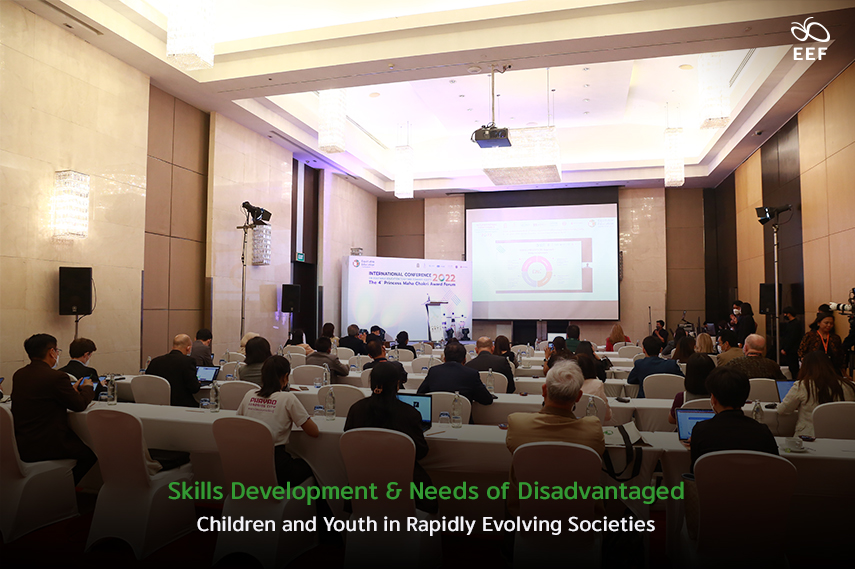
Adapting to an uncertain world is challenging, and aiming to reach Equitable Education in this disruptive era is even more complex. Preparing students with the skills needed is urgently obliged. Digital skills, Social and Emotional skills, and Work-Life skills were carefully chosen to discuss and share in 3 panels. All 3 topics were reflected in the real practices of Equitable Educators, aiming to promote Equitable Education at end.
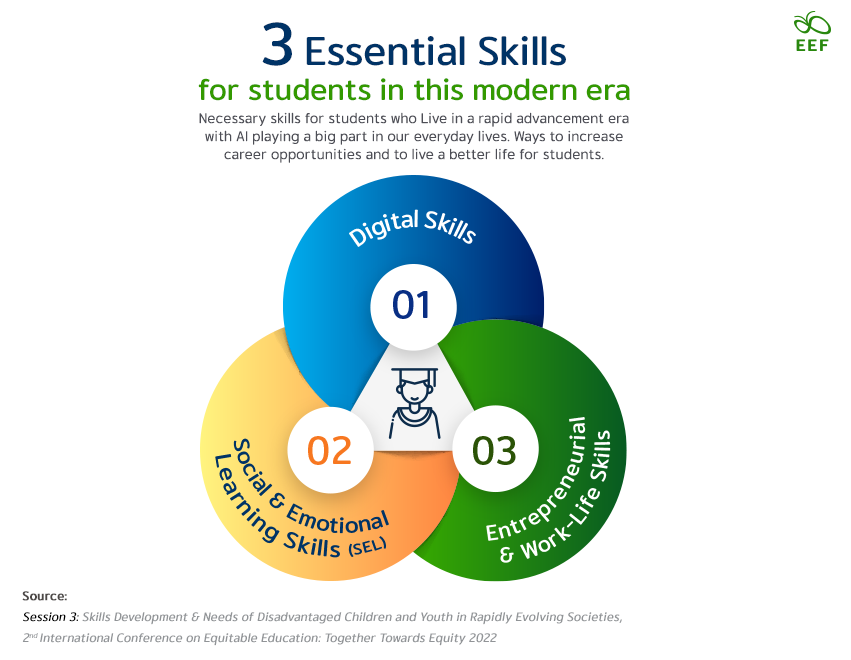
The 2nd International Conference on Equitable Education: Together Towards Equity 2022 invited participants to discuss necessary skills for students. Living in a rapid advancement era with AI playing a big part in our everyday lives and the Pandemic outbreak that shook the modern world has awakened Educators. Adaptivity of school curriculums with demanding skills is inevitable and requires immediate action. Equitable Education practitioners offered various programs from tireless efforts, trying to improve education worldwide. Seeking ways to increase Career Opportunities and to Live a Better Life for students: Digital skills, Social and Emotional skills, and Work-Life skills were highlighted at this Conference in 3 breakrooms.
The first breakout room offered Digital Skills, the essential skills in this modern era. People with Digital skills can adapt easier than those who do not accustom to technology, both in real life and work. However, acquiring digital skills is beyond reach for many groups. The digital divide excludes women from learning the skills and entering the technological industry in many regions.

Ms. Poornima Meegammana, Director for Youth Development NextGen- Girls in Technology, stated that women had been discriminated against in the technology industry Sri Lanka case. For Africa, with 400 million populations expected in 2050, unemployment will be higher than 20% without proper Digital Skills training.
Moreover, Mr. Ida Mboob, Senior Digital Development Specialist from World Bank Group, indicated that with the unique cultural-bound of Nigeria, women find it challenging to complete Education courses.
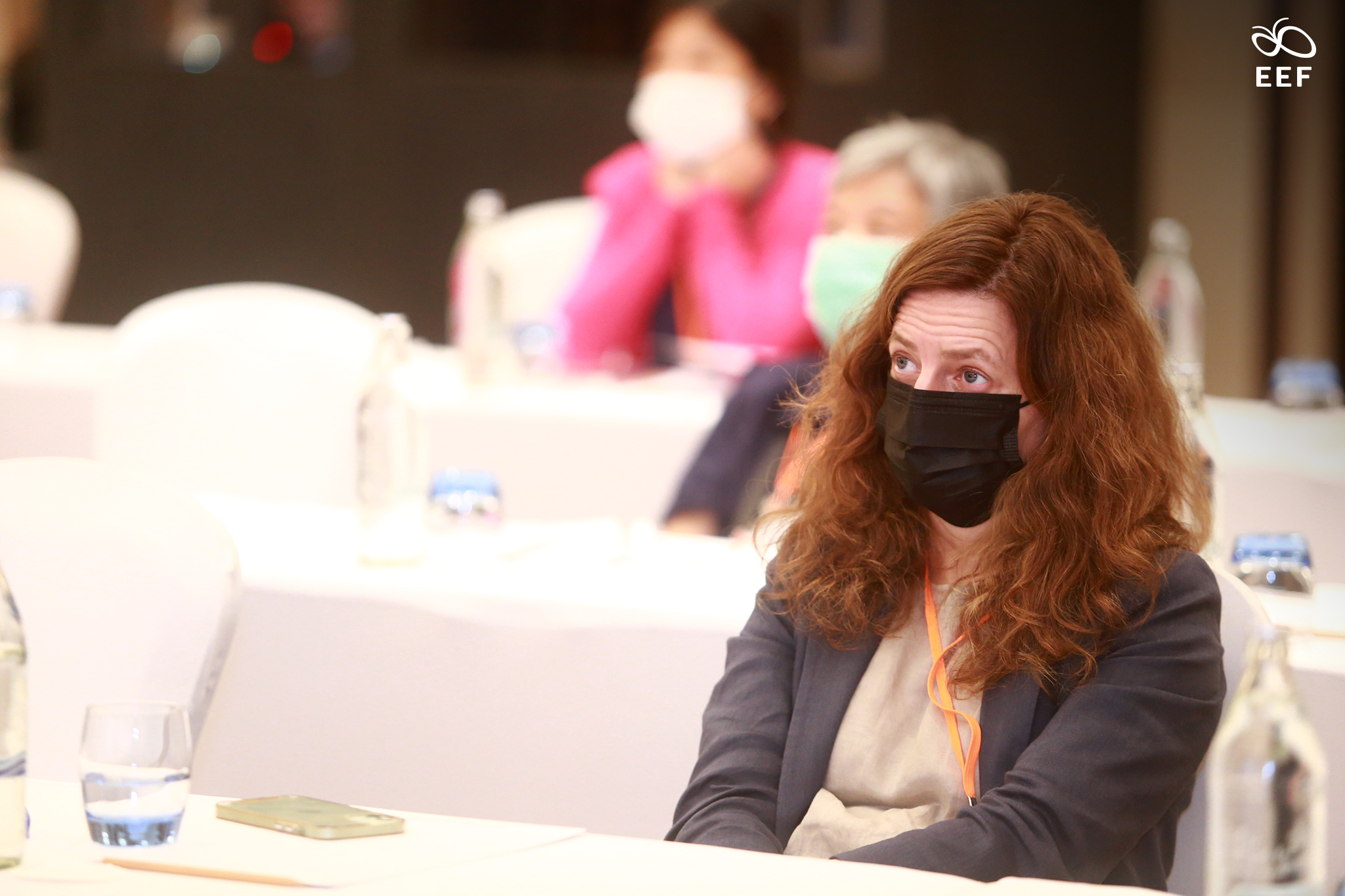
Although attempts were made to address the issues and expand economic opportunities, Ms. Supahrat Juramongkol, Microsoft APAC Philanthropies Lead, encouraged collaborative work between the public sector, private sector, NGOs, and universities to promote an Accelerating project on building digital skills. The “Accelerating Thailand” project was established to ensure that people will have AI and computer skills to advance employment in the digital economy.
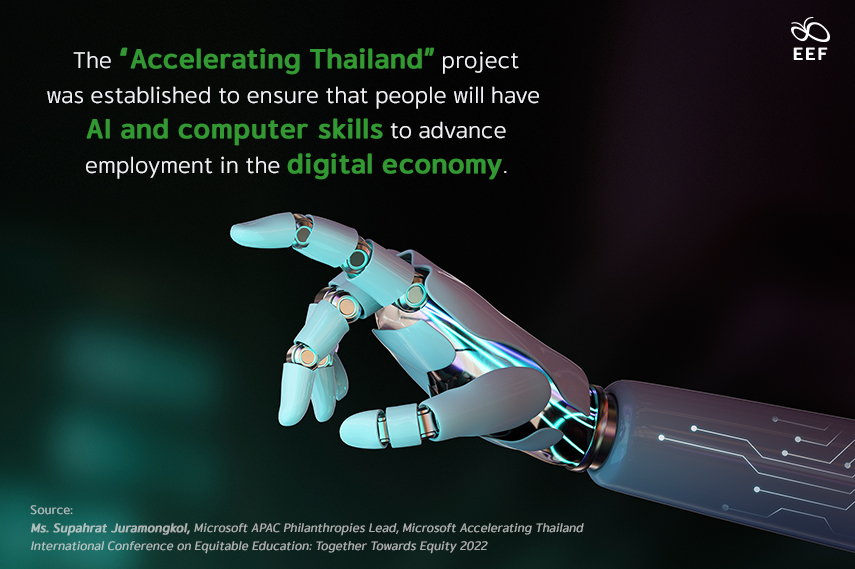
Mr. Ida Mboob suggested enabling comfort learning environment for overcoming cultural-bound difficulties. Ms. Meegammana proposed 7 strategies that support digital skills training for women (Sri Lanka’s case):
1) Technology at a young age for girls
2) Localization to adjust proper curriculums
3) Self-paced learning
4) Peer-to-peer learning
5) Flexible learning by removing distance and connectivity barriers
6) Dynamic education with closely monitoring and evaluating process, and
7) Program that specially designed for girls.
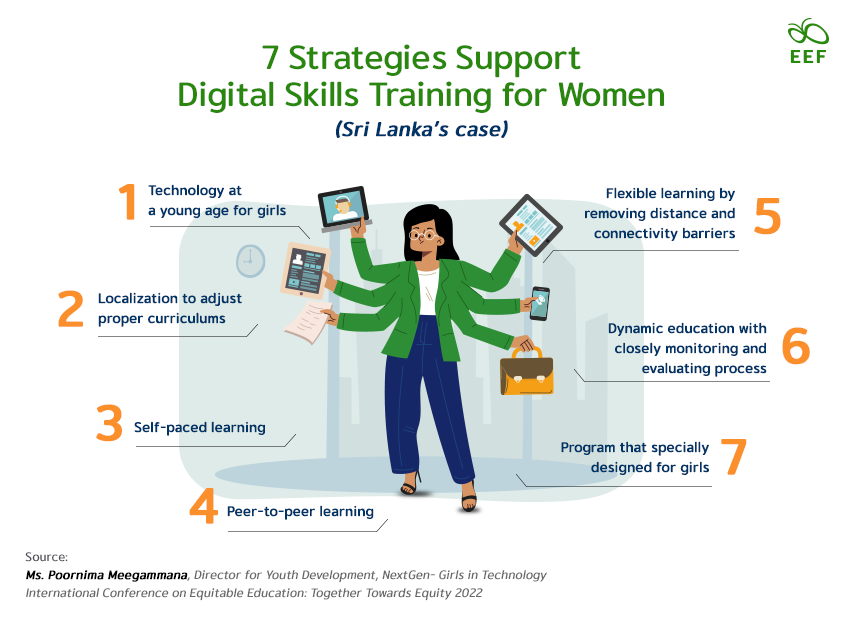
Social and Emotional Learning Skills (SEL) were discussed in the 2nd break-out room. According to research findings, the need for Social and Emotional skills will increase by 29% in all industries in the US and Europe (Mckinsey, 2017). In response to the employer’s expectancy of Social and Emotional Learning skills, SEL was examined at 3 different levels: classroom level, school level, and national level.

Ms. Danielle De La Fuente, Executive Director, Amal Alliance, reflected on SEL program implementation and presented The Color of Kindness project. The program is a tech solution designed to help leverage the competency of children’s social and emotional skills and well-being. The SEL encouraging program has proven impact with a 16.5% increase in SEL competencies.
Ms. Ammaarah Martinus, Senior Programme Officer, UNESCO, reflected on driving social and emotional skills into the classroom through teacher capacity building. Ms. Cornelia Hirania Wiryasti, ILO, reflected on Employer Perspectives on SEL. It is known that productivity is important for employers.
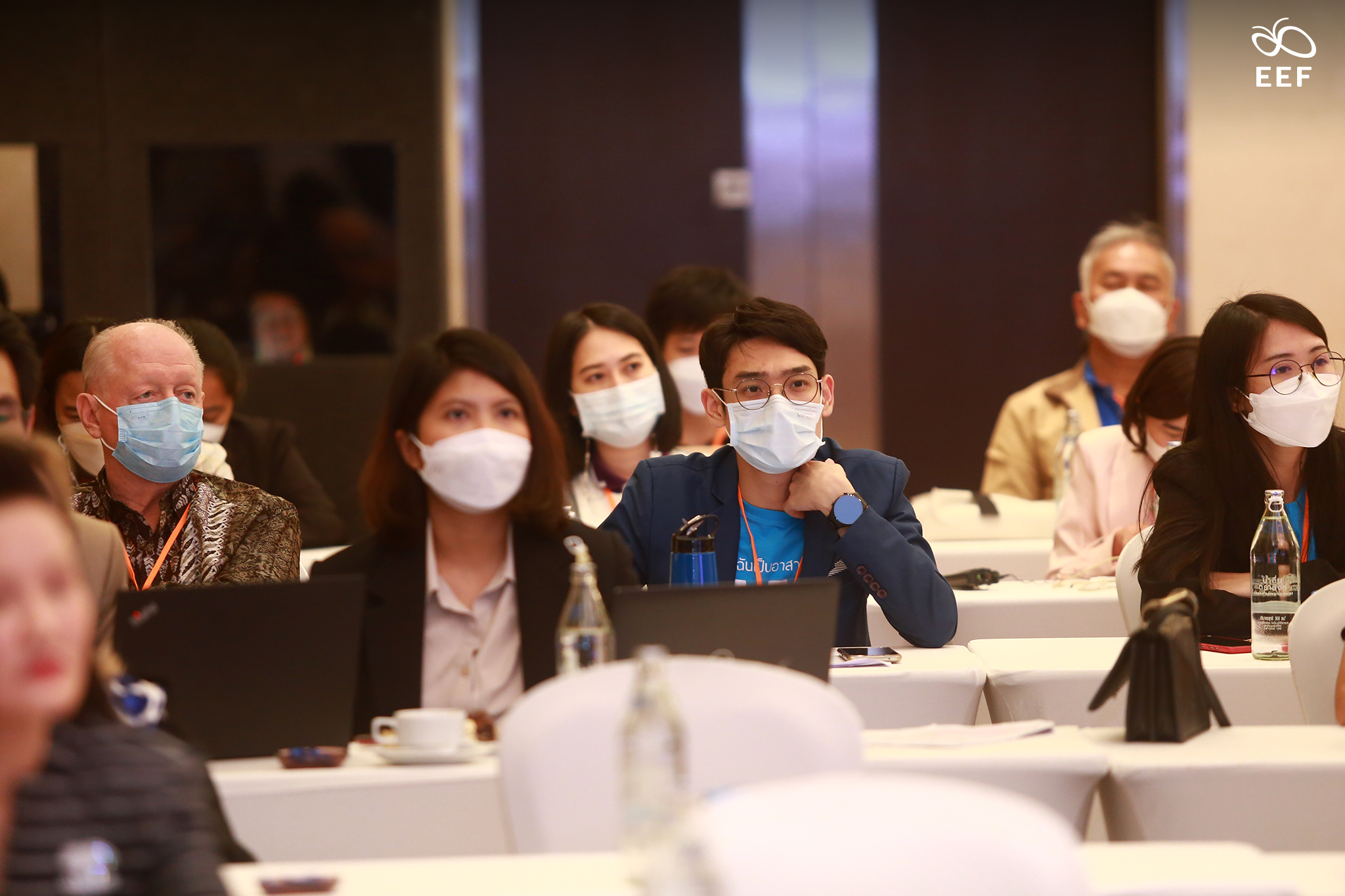
However, a Leader with proper soft skills will improve team performance by 30%. SEL, such as communication and problem-solving, can increase productivity and retention by 12% and deliver a 250% Return on Investment (a study by Boston College, Harvard, and the University of Michigan, 2021). Moreover, the ILO survey in ASEAN showed that technical skill is the most important (33%), but Social and Emotional skills are closely followed by teamwork at 33% and communication at 31%. Hence, student preparation for SEL skills is compulsory.
The 3rd break-out room is projected on building Entrepreneurial and Work-Life skills. Ms. Panthatip Mongkolsri, program director, assessment of Raks Thai Learning Centers for Migrant Children in Mahachai (MCLC), provided classes for young migrants with leadership skills and negotiation skills to build their confidence. Graduating from the program can earn a higher income than other migrant workers, hence a better life.

Ms. Angelique Roux, the private sector advisor of the USAID Opportunity 2.0 Program (O2) of the Education Development Center, has been using the top-down approach to harmonize national agencies’ plans and strategies. O2’s goal is to form and strengthen the system that provides second-chance education and workforce readiness to out-of-school youth by partnering with national agencies. Ms. Roux highlighted that, by far, 30,268 youths had undergone soft skill training, 569 youths had already applied for a job, 205 youths had started their own business, and 528 students pursued higher levels of education after training in these programs.

Ms. Pratin Leanchumroom, head of Science-Based Technological Phang Nga Technical College, stated that the college helps improve students’ entrepreneurial skills by encouraging business plan development through a science-based technology program. The college supports the student in developing prototype products and business model canvases and runs a test market to assess product performance.

Conclusively, all 3 break-out rooms have acknowledged the importance of Digital skills, SEL skills, and Entrepreneurial and Work-Life skills to handle a living in this modern-day. Training and preparing the student with proper skills require collaboration with stakeholders. The skills must be embedded in National Standards and school curricula, not just add-on material. The award could ultimately lead to student well-being and Equitable Education.
Source
International Conference on Equitable Education: Together Towards Equity 2022
Session 3: Skills Development & Needs of Disadvantaged Children and Youth in Rapidly Evolving Societies

